- Home
- Linda Newbery
The Sandfather Page 6
The Sandfather Read online
Page 6
‘I was hoping - well, that’s why I’ve come along to see you,’ Amanda went on, undeterred. ‘Is it dreadfully cheeky to ask if you’d be our special guest for the evening - for the official opening? Someone of your stature in the art world, your importance - it’d give us a tremendous boost - a famous name to bring people to the event - fantastic for publicity, and—’
At last she faltered to a stop, in the face of Don’s silence. He picked up a paintbrush, and plucked at a loose hair.
Hal was impressed. So Don really was famous, then? It was hard to believe. Surely famous people had more of a glow about them, more dazzle?
Amanda tried again. ‘Perhaps you need time to think about it.’ She took a notebook from her shoulder-bag. ‘If you give me your address, I’ll send you a formal invitation. Your email as well, if you would.’ She flipped open the notebook and held a pen poised, looking at Don.
‘I don’t do email,’ he said, his attention still on the brush, ‘and, nnng, you’ve got my address, obviously. It’s here.’
Amanda’s eyes swept around the hut’s interior. ‘Oh, but surely—’
‘How did you find me?’
‘Oh,’ said Amanda, taking this as encouragement, ‘one of our local artists has seen you coming and going - told me you’d set up a studio here. So exciting! Such an honour for Ryton! And here you are, actually at work - may I, just a tiny peek?’
She moved towards the easel, mouth slightly open, eyes wide. At once Don was on his feet, barring her way. He almost snarled, fixing her with a gaze so ferocious that she stepped back hastily.
‘Oh, I’m so sorry.’ She gave a little laugh. ‘So rude of me - please forgive me. I’m just eaten up with curiosity. A Don Inchbold in the making! It’s such a very long time since you’ve exhibited - I’m dying to see your current work. Of course, if you’d consider loaning one of your paintings for display at the opening I’d be honoured beyond words - utterly thrilled. But - entirely up to you, of course. Well, it’s been lovely to meet you, Mr Inchbold, I can’t tell you what an enormous pleasure - and—’ her gaze swivelled to Hal ‘—I do apologise again for barging in.’ She tucked the notebook into her bag, pulled out a wallet and took out a business card. ‘Here are my contact details. Do get in touch if you’re interested in following this up. Any time. Any time at all.’
‘Come on, Hal,’ Don said abruptly. ‘I’m - nnngg - locking up.’ He grabbed a rolled towel and his canvas bag and marched out, followed by a startled Amanda and then Hal. ‘See you later,’ he told Hal, locking the door. He didn’t put the key in his pocket but pushed it underneath a large stone on the decking. Then he jumped down the steps and strode off along the row of huts, in the opposite direction from the town.
Hal and Amanda watched him go. Then Amanda said brightly, ‘Well. Hal, is it? You must be very proud of your grandad.’
She actually thought—
‘Yeah,’ said Hal, letting himself pretend. ‘I am.’
8
SANDMAN
Aunt Jude was annoyed. Back from her meeting, she was A closing the garage doors as Hal came down the road. She was smart and severe in her business suit, carrying a black briefcase which she put down in the hall.
‘It’s not good enough, Hal. I promised your mum you’d get on with your schoolwork, and the very first chance I give you, you scoot off out! Can’t I trust you? I’m far too busy to stand over you, making sure you do as you’re told.’
Hal said nothing; just waited for her to stop. He felt like he had in Mr Blake’s office. Nothing he said would make any difference, so why bother? Then she took off her jacket and hung it over the stairpost, and said in a kinder voice, ‘I know you’re anxious about your mum, so I won’t go on about it, not today. I’ll make us some lunch as soon as I’ve got changed. You can do your work this afternoon.’
There was no getting away from it. They had beans on toast with salad, and then Hal was back in the dining room with the shiny wallpaper and the ticking clock, and Aunt Jude sitting opposite with her laptop. Two o’clock came, and the clock hands seemed to stick there for a very long time after the bongs.
‘Two o’clock,’ Hal said, in case Aunt Jude hadn’t remembered.
‘Yes,’ she said, understanding. ‘She’ll be all right, Hal. Really she will.’
One good thing was that Aunt Jude knew lots about maths, being an accountant, and when he got stuck with the equations she showed him how to work them out, making it seem easy. He got the impression she quite liked it, solving problems, or, rather, helping him to solve them.
‘Your mum was just like you, when she was thirteen,’ she told him. ‘Always thinking she couldn’t do things, then finding out she could do them, perfectly well. And ended up going to university. She was a clever girl - course, she still is a clever girl - only it took her a long time to believe it.’
Hal thought about this. ‘People don’t usually go to university to be a hairdresser, do they?’
‘No - well, no. That’s not what she thought she’d be, back then. But she seems to like it. And being Tina, she’d be good at anything she sets out to do.’
Hal nodded. ‘She is. And Jacky calls her Agony Aunt.’
‘Agony Aunt?’
‘Yeah. People tell her, like, all this stuff, you know, while she does their hair, and she helps them sort things out. Sometimes they come specially to talk to her, that’s what Jacky says.’
‘Mm, I can see that.’ Aunt Jude looked a bit sad. ‘She’d be a good listener. Sympathetic. But big problems of her own, she must have had. I wonder who listened to her? I just wish - oh, what a waste it’s been, this stupid family rift! All these years! I wish I’d been around to have a go at sorting things out. I always got on well with Tina.’
‘But how could you—’ Hal began.
‘Well, no.’ Aunt Jude humphed a laugh. ‘It’s big-headed of me to think I’d have smoothed everything over, with such strong-minded people as your mum and your gran and your grandad. Still, I’d have tried. First I heard, Tina had gone off and no one knew where.’
‘It was his fault though, wasn’t it? He chucked her out!’
Hal was looking straight at Aunt Jude - wouldn’t she side with the grandfather? He was her brother, after all - but her gaze shifted away, and she gave a big sigh. ‘I don’t know the ins and outs of it. But what could be so important as to split up a family?’
Me, Hal answered inside his head. It was me. But he didn’t say it aloud. Surely Aunt Jude must know that.
‘Anyway,’ she said, ‘I’m glad we’re in touch now. That’s a start. I know you’re worried about your mum’s operation, but some good’s coming out of it. And it’s lovely to have a teenager in the family again. Like a breath of fresh air.’
It took Hal a couple of seconds to realise she meant him. She smiled, not needing an answer, and went back to whatever she was doing on the laptop.
Mum, at his age, had maybe sat at this same table, imprisoned by her strict father, with a heap of homework. She’d never told him much about her childhood, presumably because of the rows that came later. The old man couldn’t have cared for her at all, or he wouldn’t have acted as he did.
Hal couldn’t imagine that Mum would ever throw him out, no matter what he did, no matter how he disappointed her. She wouldn’t, she just wouldn’t. It was a fact of his life.
He finished the maths, had a break, then toiled away at geography. At six o’clock Aunt Jude phoned the hospital, and was given the news that Mum was fine, very sleepy after her operation, and would be able to talk on the phone tomorrow.
‘There! That’s good. Now we can relax.’ Aunt Jude uncorked a bottle of wine, and took a chilled Coke from the fridge for Hal. ‘Where can Don have got to? He’s usually here by now. Will be, as soon as I start cooking. He usually likes to take over.’
Only now did Hal remember that Don had gone stomping along the beach, several hours ago.
‘He walked off,’ he told her. ‘He was cross, I think, c
os some woman came to his hut.’
‘When?’ Aunt Jude said sharply. ‘What woman?’
‘Amanda someone. From a lifeboat gallery.’
‘Oh, the new arts centre. Came to his hut? What did she want?’
Hal tried to pick out the facts from all the gush. ‘She wants him to be, like, a special guest when they open. Because he’s so famous. Is he?’
‘Oh dear, that would have upset him,’ Aunt Jude said, more to herself than to Hal. She fetched potatoes, onions and carrots from the vegetable rack and ran water into the sink. ‘Yes, you could say he’s famous, or was. To people who know about art, anyway. Back in the sixties he was one of the Bright Young Things of British painting. Sold his work for ridiculous sums of money. Most of them went to private collections, but his most famous one, Moony it’s called, was stolen, never seen again. It was in all the papers at the time.’
Hal didn’t get this. ‘So why does he act weird when people come and tell him he’s cool? You’d think he’d like it.’
‘Because that was then and this is now. He’s changed his style completely. He doesn’t want to be the Don Inchbold who had pictures in smart London galleries and was in the news. He thinks he just happened to be fashionable. What he does now is much better, but he doesn’t like anyone seeing it. Set the table, could you, Hal? Knives and forks in that drawer there. He’ll roll up before long, the silly old grump.’
It seemed odd to Hal that Don practically lived here with Aunt Jude, when neither had a good word to say for the other.
‘Don’t you like him?’ he asked.
‘Like him?’ Aunt Jude turned to him in surprise. ‘Course I do. I love him to bits - he’s my dearest, closest friend. Couldn’t imagine not having him around.’
Don arrived just as Aunt Jude was serving up the shepherd’s pie. No one referred to his lateness, nor to Amanda Farman. Don drank wine and ate hungrily, then cut up a pineapple for them all to share, and made strong coffee. If he’d been annoyed earlier, he was over it now. He told Aunt Jude that he’d had a good day, had been swimming, and painted well, and that he’d enjoyed having Hal to visit.
When they’d finished eating and had cleared up, Don and Aunt Jude settled with their coffee to watch some old film on Sky. Hal checked his text-messages: HOW U DOIN? from Osman. COOL, he texted back. If he could get on line, he’d send an email, saying he’d met someone really famous, and had been down on the beach while Oz and Luke had been in double science.
He hadn’t seen a computer anywhere in the house, but when he asked Aunt Jude about internet access she said that he could use her laptop for a while. ‘For an hour, say, before bed. As long as you’re - you know - sensible about it.’
She let him take it into the dining room. Hal sent the email to Oz, then did a Google search for Don Inchbold.
A whole list of results came up, pages and pages of them.
‘Don Inchbold was one of the most innovative painters of the 1960s,’ he read, and there was a photograph of a much younger but just about recognisable Don, with long dark hair and sideburns, and a T-shirt with purple star-bursts all over it. ‘After attending St Martin’s College of Art, he exhibited at the Carnaby Street Gallery and the Hayward, to wide acclaim.’ And when Hal scrolled down, there were Don’s paintings, with titles like Dream 9 and Moony and Android. They were nothing at all like the grey painting Hal had seen at the beach hut, with the cartoony figure. They looked more like photographs, clear and sharp: black sky and stars, orbiting capsules, a close-up of the moon that looked so close he thought he could land on it, like the Apollo astronauts. That one, the caption said, had been stolen after being sold to a private buyer, and never seen since.
Still, it was true. Don was famous, even if he didn’t want to be.
Hal surfed for a bit, then put the laptop back in its case and returned it to Aunt Jude. ‘Thanks, Hal. Bedtime now,’ she told him.
Don was sprawled out in an armchair, legs apart, hairy shins showing above odd socks, one of which was frayed and unravelling round the top. Hal couldn’t help looking at him with new respect. All those hits!
‘See you tomorrow, if you feel like another visit,’ Don told him.
Hal went upstairs, his head full of the day. Relief about Mum had allowed all the other impressions to surge forward. The sea, the waves, the shingle and the sand. Don’s painting. Don marching off in a strop. The things Aunt Jude had said, and the things Don didn’t say.
Hal dreamed that he was back on the beach, digging. The wooden bat was firm in his hand; the lull and fall of the waves was inside his head. And the bat-spade seemed full of its own energy; the figure he wanted to sculpt was taking shape as fast as he could heap the sand. He thought at first it was going to be a whale, sleek and streamlined, but it straightened and narrowed, its fins became arms, its tail divided into legs and feet; it had a distinct, faceless head.
He wanted it to look at him. To see him.
Reaching into his pocket he took out a marble. He held it to the light and saw how the lick of green was suspended in clear glass, like a brushload of bright paint caught there, gleaming. He took a second marble from his pocket, then placed both in the sandman’s face.
Now the man had eyes. He looked at Hal. The arms began to move, the legs to bend at the knees; the man planted his feet and sat up.
‘Who are you?’ he said, although he had no mouth.
‘I’m—’
‘Who are you?’
‘I’m—’
The sandman stared. He didn’t really need to be told. He stood and faced Hal, looked him up and down with his marble eyes.
Then he turned away and walked into the sea.
‘Dad!’ Hal tried to shout, but urgency clogged his throat and stopped the word from escaping. It wasn’t a word he’d ever said in his whole life, like that, to a Someone.
The sandman waded into the rushing waves, deeper and deeper until the water closed over the top of his head. A cloud of sand spread under the surface, dissolved into separate glinting particles, settled.
Gone.
9
PRINCE
Hal couldn’t at first think where he was. The windows, already a rectangle of bright daylight, were in an unfamiliar place; the walls were farther apart than they should be.
Then he remembered.
The dream had left him groggy and dazed, but was vivid in his mind. The sense of loss tugged at him like an ache.
But the marbles were real. He took out the bag and reached in for one, then held it up. It was the pillar-box red one, not green as in his dream, but he slipped it into his pocket in case it brought luck. Then he reached for a second, and this time it was green.
‘What’s the matter?’ Aunt Jude asked him, when he went downstairs. ‘Slamming doors, crashing about?’
‘Nothing.’ He couldn’t explain; didn’t even know what was wrong. He was in a bad mood, that was all.
Aunt Jude looked at him, but said no more.
‘Look, what a lovely day,’ she remarked instead. ‘Warmer than yesterday.’ She’d already opened the double doors of the dining room that led out to the garden.
Don appeared briefly, downed two mugs of strong coffee, and said he’d be in the hut all day if Hal felt like dropping in.
After breakfast Aunt Jude said that she had work to do at home: ‘So there’s no escape for you this time, Sonny Jim. But you can go out after lunch if you work well this morning.’ She brought her laptop into the dining room and set Hal up with his English, which involved reading two chapters of a book, then writing a playscript. That wasn’t too bad; it would have been more fun making it up with Osman or even Luke, but nevertheless he managed to produce something, and had moved on to geography by the time Aunt Jude said they both deserved a mid-morning break. The radio in the kitchen was playing soft music, so even the clock’s tocking wasn’t as infuriating as it had been yesterday.
‘Nothing’s as bad as you think, if you get on with it,’ Aunt Jude told him cheerful
ly. ‘It gets done.’
All the while, Hal felt the sea tugging him back to it, like the moon pulling the tides. The crunch of pebbles, the salt-laden wind, the shifting colours of sea and sky - part of him was on the shore, even while he sat staring at a graph of population growth in China.
At last, lunch over, enough work done to earn him some time out of the house, he was free, running down Laurel Drive.
It was the day of the match, he remembered, after school today. Soon they’d all be there in the changing room, out on the pitch, warming up, kicking about, without him. Jason Green in his place - it gave him a pain in his chest, thinking about it. This was just year nine versus year ten, but Hal had played once for the under-sixteens and had done better than he could have dreamed, scoring in the second half. Hicksy had set it up beautifully for him; there was the goal-mouth in front, the goalie with hands outstretched, two defenders wavering, and then Hal’s boot had slammed into the ball, sending it into an arc of absolute soaring perfection, floating into the top left corner of the net while the goalie’s gloved hands flailed uselessly. The ball was drawn there as if it couldn’t possibly have gone anywhere else. That moment of pure singing happiness - it might have been the best moment in his entire life. He’d been afloat on it, his heart swelling like a great balloon of pride, his feet light enough to run a marathon. And then the yells going up from his own team, the slaps and the shoves and the beaming faces, and Hal a hero. Could anything be as good as that, ever?
That goal had won them the match. Hal had looked at his right boot with special respect when he took it off. Stroked it. Would have thanked it if no one had been listening. Magic, that was, sheer magic.

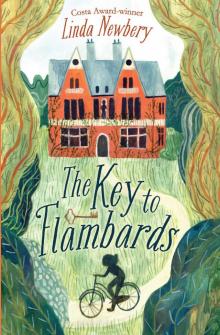 The Key to Flambards
The Key to Flambards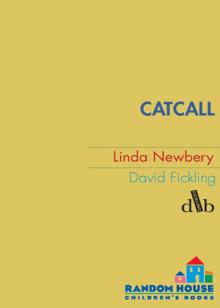 Catcall
Catcall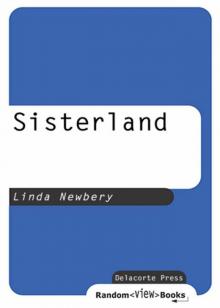 Sisterland
Sisterland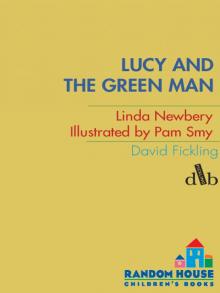 Lucy and the Green Man
Lucy and the Green Man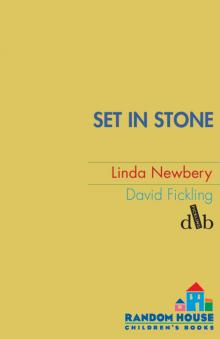 Set In Stone
Set In Stone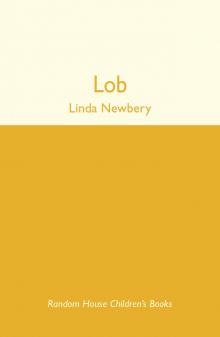 Lob
Lob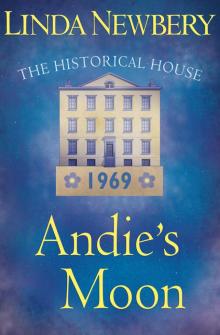 Andie's Moon
Andie's Moon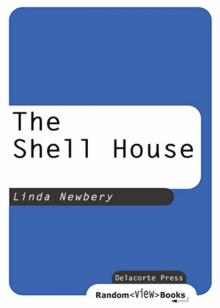 The Shell House
The Shell House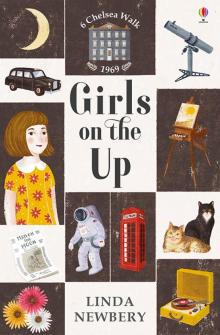 Girls on the Up
Girls on the Up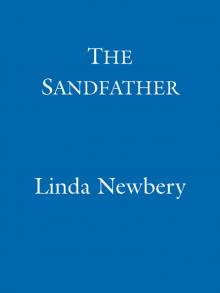 The Sandfather
The Sandfather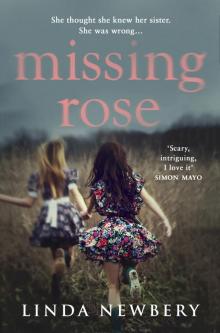 Missing Rose
Missing Rose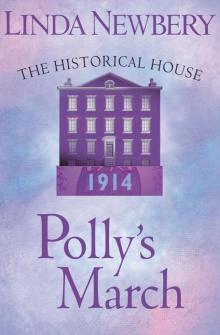 Polly's March
Polly's March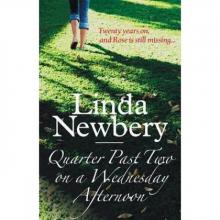 Quarter Past Two on a Wednesday Afternoon
Quarter Past Two on a Wednesday Afternoon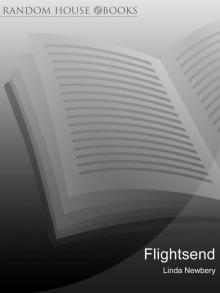 Flightsend
Flightsend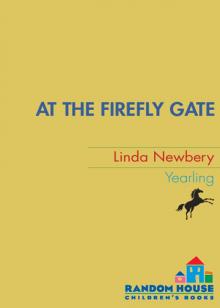 At the Firefly Gate
At the Firefly Gate